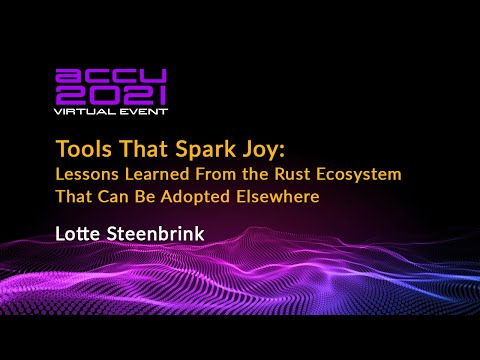By Lotte Steenbrink
Tooling is an essential part of creating solid software: it helps us find errors, build what we want and understand what we’ve built. With a compiler that’s eager to help, accessible documentation and modern dependency management, Rust consistently scores highest in developer surveys when it comes to development tools.
Working with Rust in 2020, I learned just how much its ecosystem lives up to this reputation, and wished I’d had a similar experience in C and C++ projects.
However, switching to Rust shouldn’t be the only way to have this aha moment. Instead, we can examine Rust’s tooling to learn how it manages to provide you with exactly the help you need - exactly when you need it, and apply this knowledge to the helpers we build for our own ecosystem.
This talk examines the culture, technical insights and resulting design decisions that shaped how the Rust community approaches tooling. We’ll be looking at core infrastructure like rustc and learn how their best practices organically influenced third-party efforts such as knurling-rs.
We’ll wak through what Rust’s friendly tooling looks like in practice, and which lessons learned from building it can be applied to improve development workflows in other languages too.












